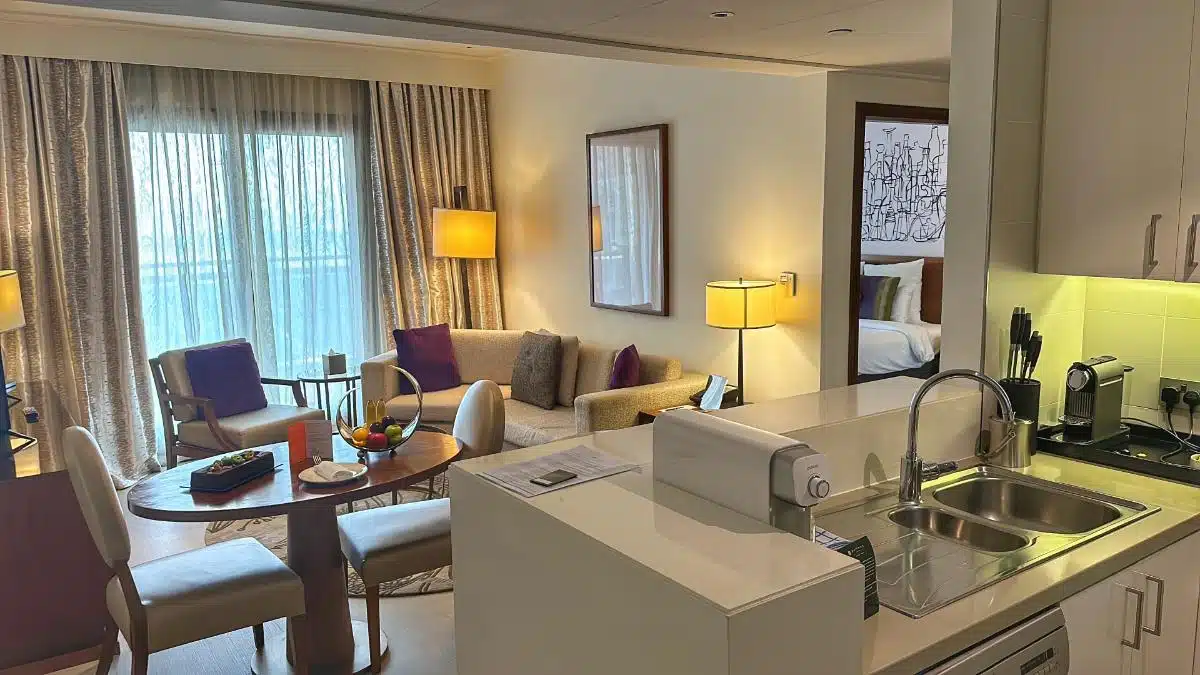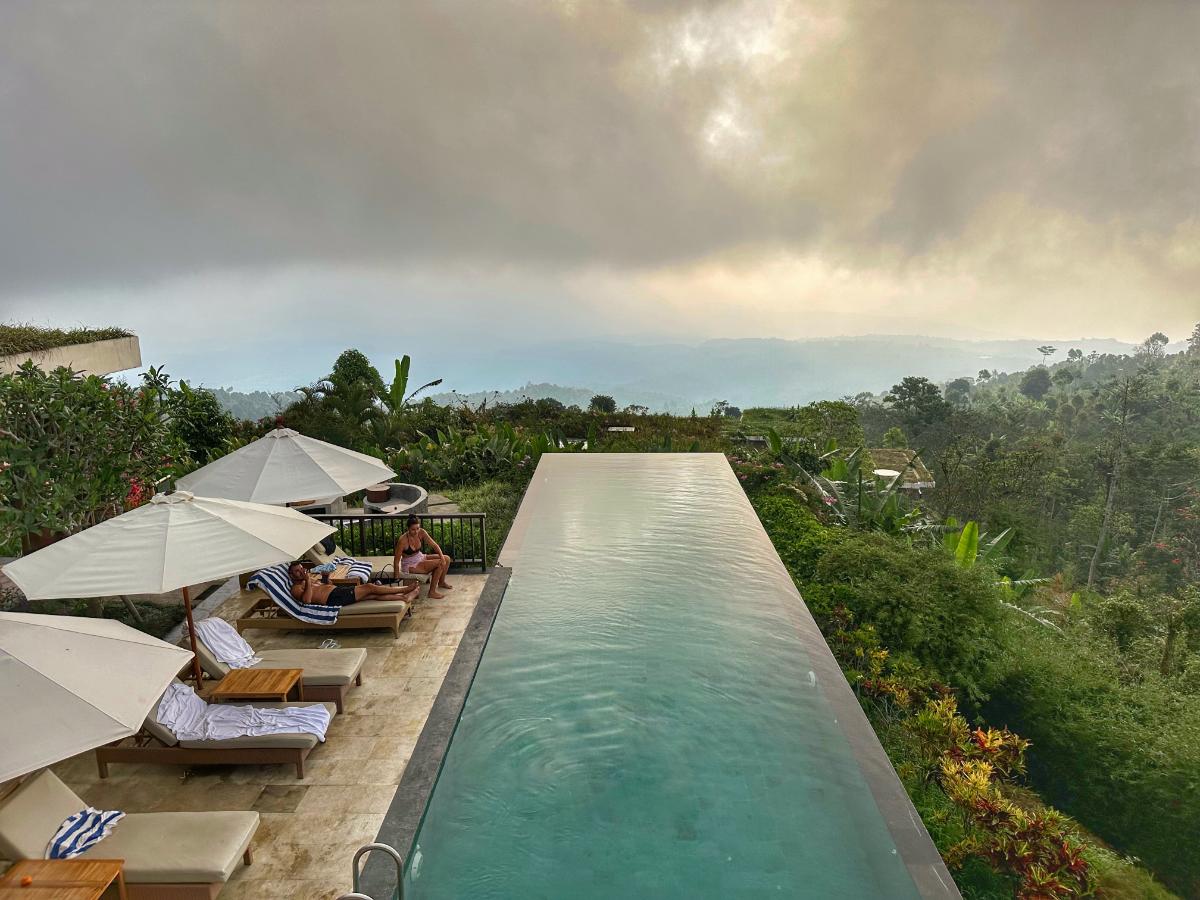Imagine this: your ‘apartment’ comes with 24/7 room service, a concierge at your beck and call, and a rooftop pool. Too good to be true? By 2030, this could be the reality for many as hotels evolve from short-stay havens into vibrant, all-inclusive hubs optimized for long-term living.
This concept, supported by McKinsey-led insights from leading hotel brand Accor’s executive team, is gaining traction as societal and cultural preferences, technological advancements, the rise of flexible working, and economic shifts continue to drive significant transformation.
Reports indicate that 78 per cent of Millennials now prioritize experiences over material possessions or property ownership, highlighting the shift toward service-oriented, flexible living arrangements.
But the question is: what’s driving this shift, and why could it be the next logical step for the future of accommodation?
The Changing Definition of “Home”
The concept of “home” is no longer tied to a single address or a traditional living structure; people today crave flexibility, simplicity, and adaptability.
For example, renting an apartment may feel limiting for those seeking variety or frequently traveling for work or leisure. Enter hotels: with built-in flexibility, furnished options, and all-inclusive billing, they are perfectly positioned to fill this gap.
This shift in priorities is evident in the rising demand for flexibility, reflected in the growing popularity of co-living spaces, Airbnbs, co-working hubs like WeWork, and other subscription-based accommodations.
These trends are backed by both data and sentiment. In 2024, the global “extended stay” hotel market is valued at over $22 billion USD and projected to grow at an impressive rate of 7.4 per cent annually, reaching $39 billion USD by 2032, less than a decade away.
Hotels Responding to Consumer Residential Demands

In response to these rapidly shifting consumer priorities, hotels are already adapting to cater to long-term stays.
Major chains like Marriott and Accor are experimenting with the integration of residential-style services, such as private kitchens, laundry facilities, and customizable living spaces.
Proof is in the market pudding. In 2022, Marriott launched “Apartments by Marriott Bonvoy,” specifically designed for long-term residents, while Accor’s “Extended Stay” offering, introduced in 2020, offers similar “home-like” facilities to meet the growing demand for extended stays.
Hotels are also increasingly integrating co-working spaces, wellness facilities, and personalized dining options to cater to individuals seeking a flexible, stress-free, and variety-packed lifestyle.
Challenges and Considerations of Hotel Living
While the idea of living in a hotel full-time might offer undeniable perks, it also comes with challenges, including significant financial considerations that must be addressed.
At first glance, hotel living costs may appear higher than traditional housing, but, on closer inspection, the inclusion of utilities, maintenance, furniture, and cleaning definitely narrows this gap.
Another key consideration is privacy, as frequent staff access to living spaces could feel intrusive to some residents.
The lack of customization and transient nature of hotel communities can pose challenges for some residents, making it harder to establish a sense of belonging or permanence.
Recognizing these challenges, hotel chains are tailoring their offerings to meet the priorities of Millennials and Gen Zers, they address concerns about cost, privacy, and flexibility, creating living solutions that resonate with these key demographic groups.
Sustainability and Environmental Benefits

Hotels have the potential to lead in sustainability by leveraging centralized systems for heating, cooling, and water management, which are often more energy-efficient than individual homes.
Shared resources such as gyms, pools, and restaurants also minimize a hotel’s overall emissions footprint by reducing the need for duplicate facilities.
For instance, a hotel with a single pool or fitness center serving hundreds of residents is far more resource-efficient than maintaining individual amenities across separate apartments.
Many hotel chains adopt renewable energy sources and waste reduction initiatives, such as Munduk Moding Plantation in Bali, which recycles and purifies wastewater from hotel rooms and pools to water their coffee plantation.
Marriott has committed to reducing its global carbon emissions by 30 per cent across its properties by 2025, compared to 2016 levels. Similarly, Accor is prioritising energy efficiency, water conservation, and recycling programs.
These efforts align with the values of Millennials and Gen Z, who increasingly prioritise sustainable living options and are more likely to support brands demonstrating a commitment to environmental responsibility.
By combining shared resources with innovative green initiatives, hotels can offer convenience and a lifestyle that appeals to environmentally conscious residents.
Blue-Sky Living: The Hotel Life Advantage

Living in a hotel offers a lifestyle that traditional apartments simply can’t rival–especially for Millennials and Gen Z, who value convenience and experiences over accumulating material possessions.
Imagine this: waking up in a spotless room, enjoying a gourmet breakfast, and having access to premium amenities like a spa or pool—all without stepping outside.
For these generations, it’s about more than luxury; it’s a lifestyle transformation. By eliminating the everyday hassles of cleaning, maintenance, or cooking, hotel living allows residents to reclaim their time for focussing on career goals, traveling, or trying new hobbies.
And it’s not just about convenience. Hotels are redefining community living with curated events like networking sessions, wine tastings, and yoga classes, creating vibrant social environments that offer variety and opportunities to build meaningful connections
The Rise of “Subscription Living”
Another rapidly emerging hospitality trend is “subscription living”, which allows residents to pay a fixed monthly fee covering accommodation, meals, utilities, and access to amenities.
This offers unparalleled flexibility, enabling residents to switch between properties within a hotel network—spending one month in Berlin and the next in Dubai—with a simple, all-inclusive budget to manage.
For frequent travelers and remote workers, this level of freedom can be truly life-changing.
Home Is Where the Hotel Is
To meet these growing demands, hotels are blending home comforts with luxury services, setting the stage for a new era of living.
Accor’s “Extended Stay” program features larger rooms with kitchens, workspaces, and tailored packages.
As observed by senior hospitality consultant, Jack Levy of CBRE, hotel brands have grown their extended-stay portfolios by over 50 per cent between 2013 and 2023, an uptick of 7.1% annually, as they continue to launch new offerings.
Conclusion: How the Future of Living Will Redefine Home
As hotels evolve to meet the demands of a changing world, they are transforming the very concept of “home.”
No longer limited to short-term stays, the hospitality industry is embracing long-term living solutions that blend convenience, community, and sustainability—creating spaces that align with the values of today’s consumers.
From Millennials and Gen Z prioritizing experiences over possessions to remote workers seeking flexibility, the shift towards hotel living is more than a trend; it’s a reimagining of how we live and work.
By offering tailored services, all-inclusive packages, and opportunities for connection, hotels are positioning themselves as more than a place to stay—they are becoming hubs for modern living.
Challenges like cost and privacy are real, but they are being addressed through innovative solutions, such as subscription-based models and sustainable practices.
For residents, this lifestyle offers the freedom to focus on what truly matters—be it career growth, travel, or personal development—without the burdens of traditional homeownership.
As we approach 2030, it’s clear that hotel living is no longer just a vision for the future—it’s happening now.
With hospitality giants like Marriott, Accor, and Selina leading the charge, the era of flexible, experience-driven, and eco-conscious living is here to stay. For many, it’s time to rethink home—not as a fixed address, but as a lifestyle of freedom, choice, and endless possibilities.



Leave a Reply